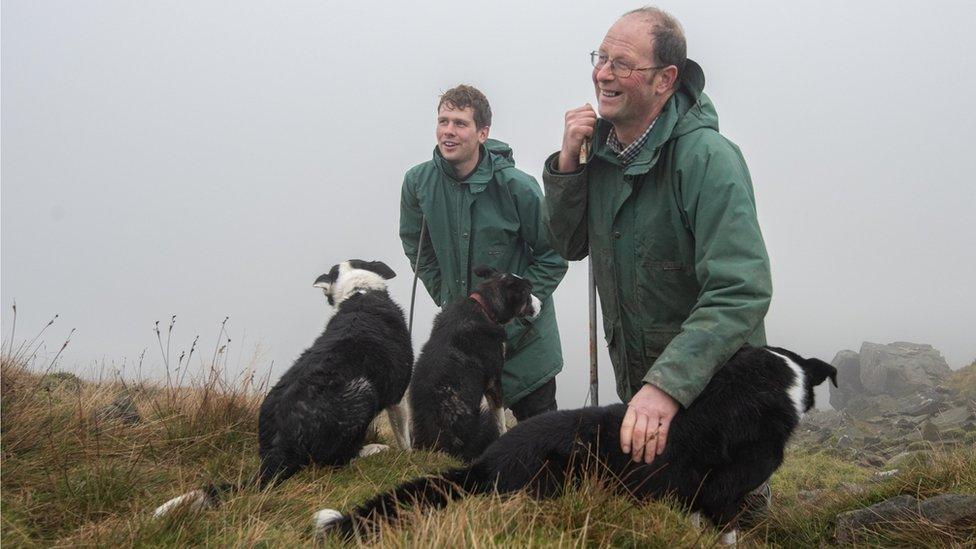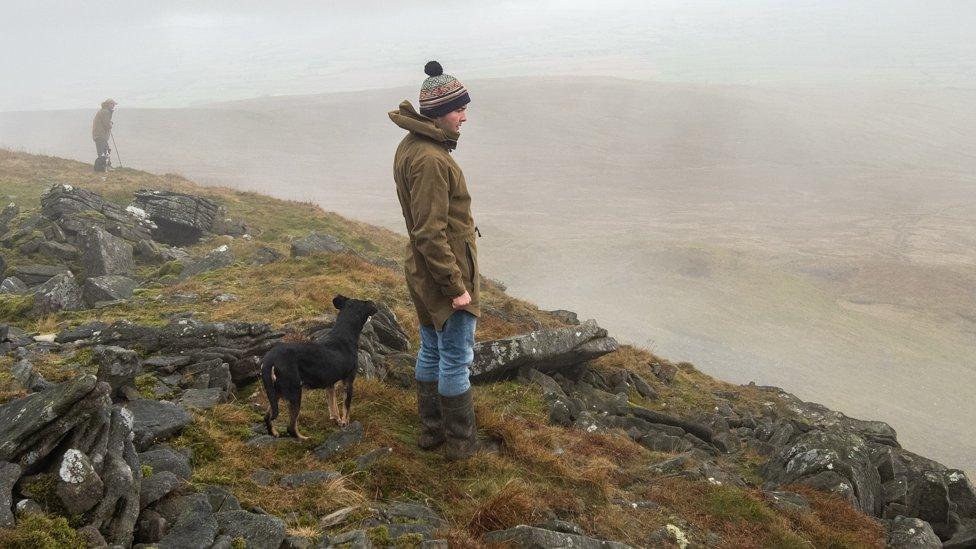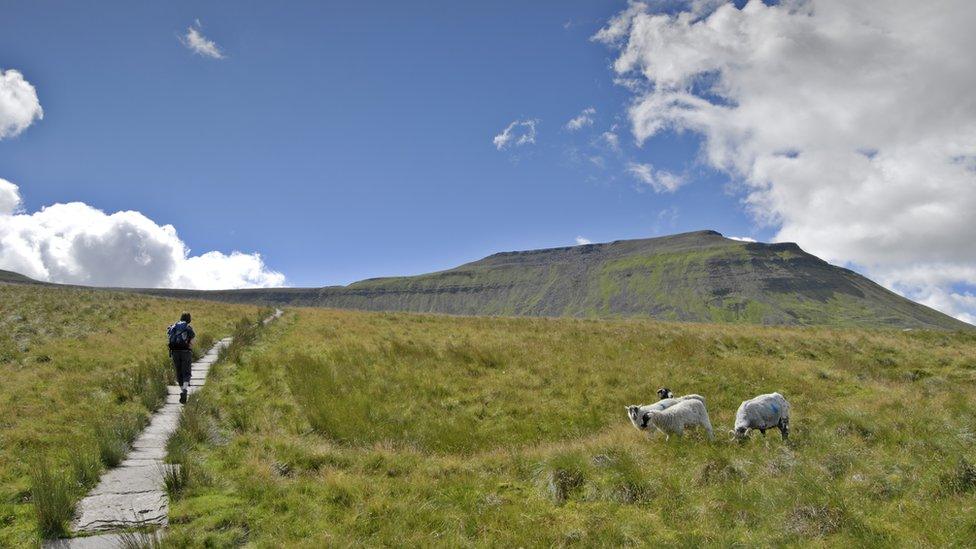Yorkshire Dales: New investment in ancient grazing practice
- Published

William and John Dawson gathered their sheep at Ingleborough in the Yorkshire Dales
New sheep pens have been built for farmers using an ancient but threatened practice to graze their animals.
The sheep were gathered at Ingleborough Common in the Yorkshire Dales in a method known as commoning, where farmers allow their flocks to graze together on common land.
The Our Common Uplands Project has funded the construction of the £11,000 new sorting pens for the animals.
Farmer William Dawson said it was "nice to see investment" in the practice.

The practice of commoning dates back to 1215, according to the Foundation for Common Land
Commoning is a land management practice dating back to 1215, according to the Foundation for Common Land.
It involves a group of farmers grazing their animals on a piece of shared land without fences or boundaries between them.
John Dawson from Bleak Bank Farm is chair of the Ingleborough Graziers and said: "I'm a big fan of the project. It's raised the profile of what we do - it's as simple as that. We were so long under the radar.
"Some aspects of commoning and the agricultural life are undervalued by society."

Ingleborough Graziers including John Kelsall sorted their ewes at the newly built pens
Mr Dawson's son William said investment in the new sorting pens had been beneficial as the previous sorting pens were built in the 1960s and were held together by twine.
He said there were about 30 farmers using the common land to graze animals in the early 2000s, that number has now fallen to 12.
"As small farms have sold up because they are no longer viable, the number of gatherers has come down. So it's nice to see investment being made in commoning," he said.
Derek Twine from the Yorkshire Dales National Park Authority said the benefits that come from traditional management of commons include improvements to wildlife habitats, carbon sequestration and water storage.

Follow BBC Yorkshire on Facebook, external, Twitter, external and Instagram, external. Send your story ideas to yorkslincs.news@bbc.co.uk, external.
Related topics
- Published17 May 2022

- Published25 June 2021
